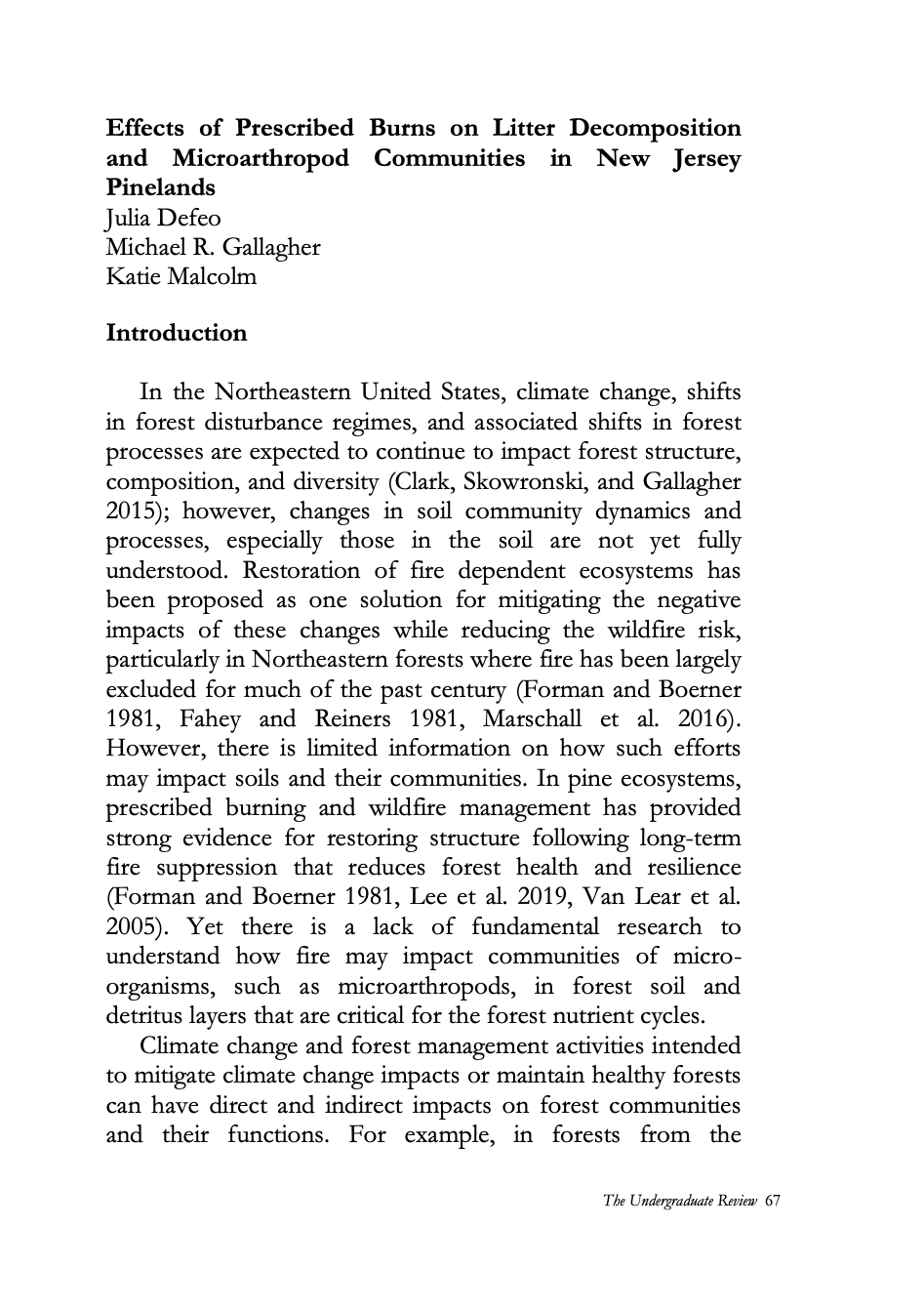Authors
-
Julia Defeo
-
Michael R. Gallagher
-
Katie Malcolm
Abstract
In the Northeastern United States, climate change, shifts in forest disturbance regimes, and associated shifts in forest processes are expected to continue to impact forest structure, composition, and diversity (Clark, Skowronski, and Gallagher 2015); however, changes in soil community dynamics and processes, especially those in the soil are not yet fully understood. Restoration of fire dependent ecosystems has been proposed as one solution for mitigating the negative impacts of these changes while reducing the wildfire risk, particularly in Northeastern forests where fire has been largely excluded for much of the past century (Forman and Boerner 1981, Fahey and Reiners 1981, Marschall et al. 2016). However, there is limited information on how such efforts may impact soils and their communities. In pine ecosystems, prescribed burning and wildfire management has provided strong evidence for restoring structure following long-term fire suppression that reduces forest health and resilience (Forman and Boerner 1981, Lee et al. 2019, Van Lear et al. 2005). Yet there is a lack of fundamental research to understand how fire may impact communities of micro- organisms, such as microarthropods, in forest soil and detritus layers that are critical for the forest nutrient cycles.
Author Biographies
Julia Defeo
Julia DeFeo is a third-year Biology major at Rutgers University-Camden. She works part-time as a research assistant at the Rutgers Pinelands Field Station, and she hopes to pursue a graduate degree in ecology after receiving her bachelor’s degree. Julia hopes that this work will further the understanding of the effects of prescribed fire on soil communities.
Michael R. Gallagher
Dr. Michael R. Gallagher is a Rutgers alum with a B.S. in Ecology and Natural Resource Management and a Ph.D. in Ecology and Evolution from the School of Environmental and Biological Sciences. He is a research ecologist at the USDA Forest Service Northern Research Station’s Silas Little Experimental Forest in the New Jersey Pinelands where he conducts research focused on wildland fire and forest disturbance topics. His current projects are heavily field-based on topics physics-based fire behavior models for prescribed burning, remote sensing of forest fuels and fire effects, effects of prescribe burning on tick abundance and their disease burden, and firebrand hazard.
Katie Malcolm
Dr. Katie Malcolm is a high school teacher at the Episcopal Academy in Newtown Square, PA, where she teaches Biology and advises an after-school science research club (part of the Pennsylvania Junior Academy of Sciences). Prior to this role, Katie (CCAS '11) served as the Manager of the Rutgers Pinelands Field Station and was involved in a number of ecology-based research projects.



